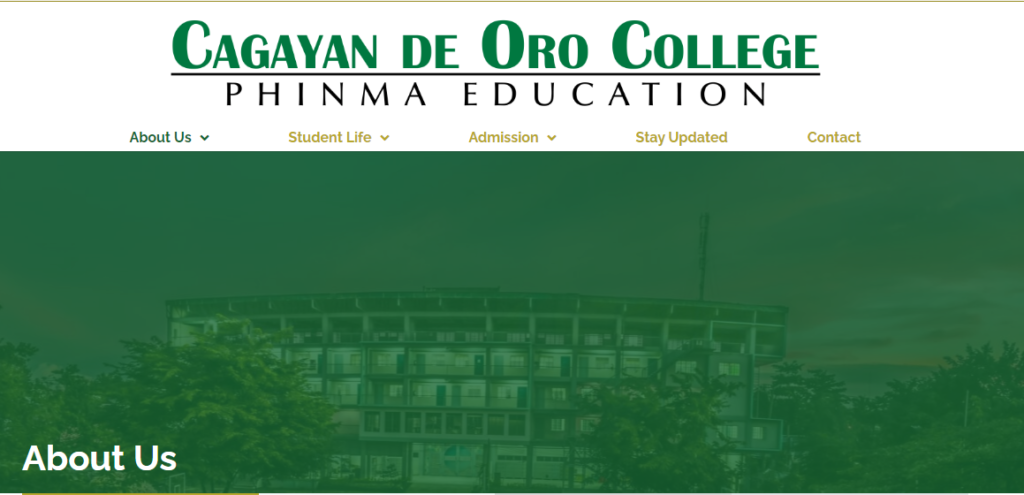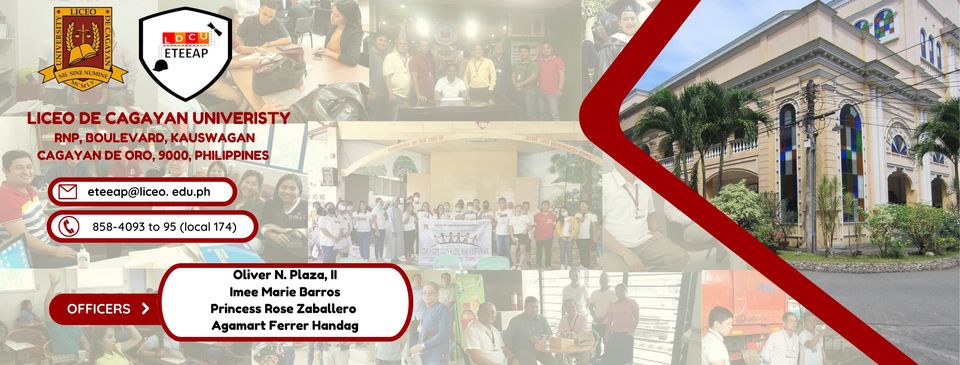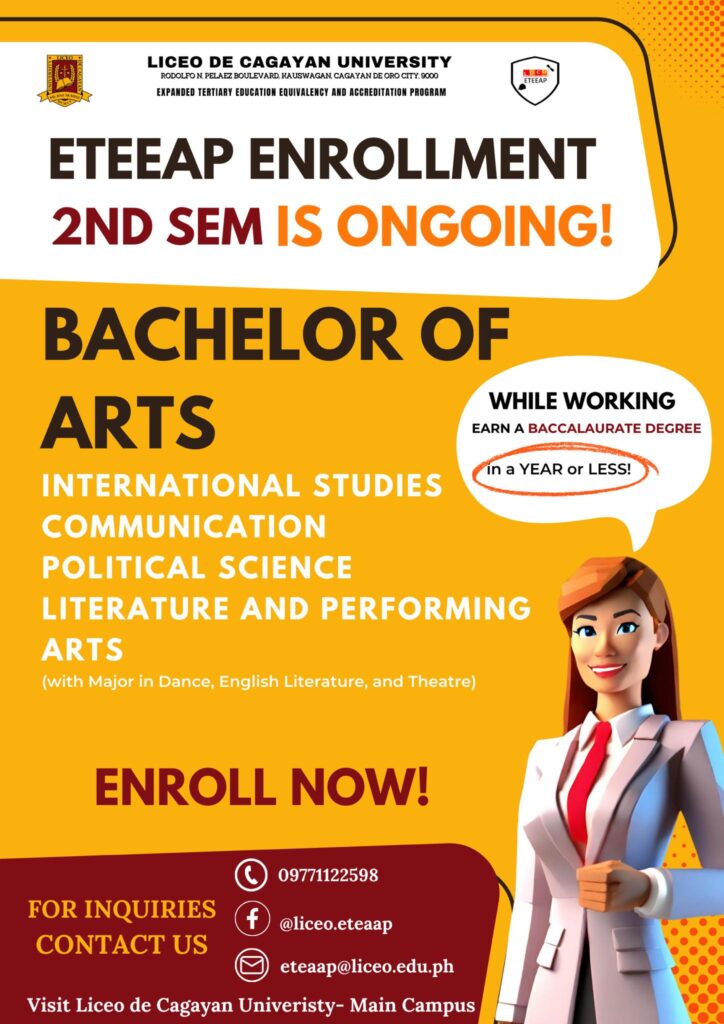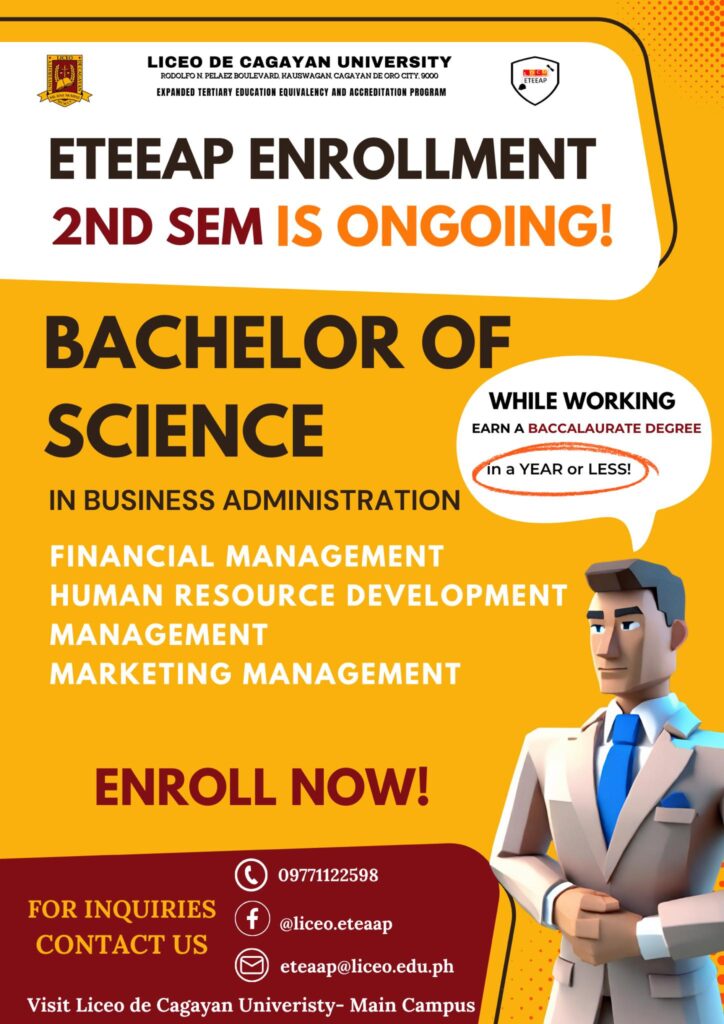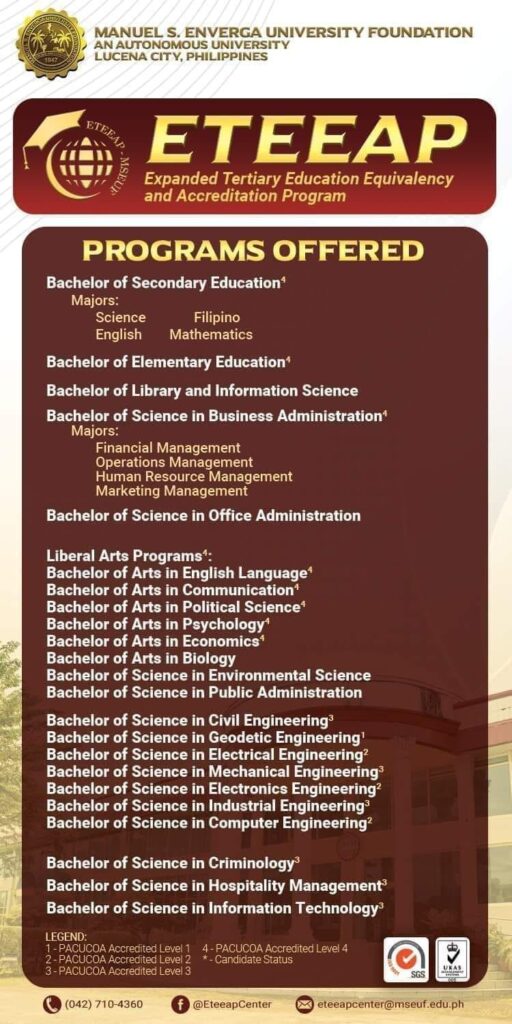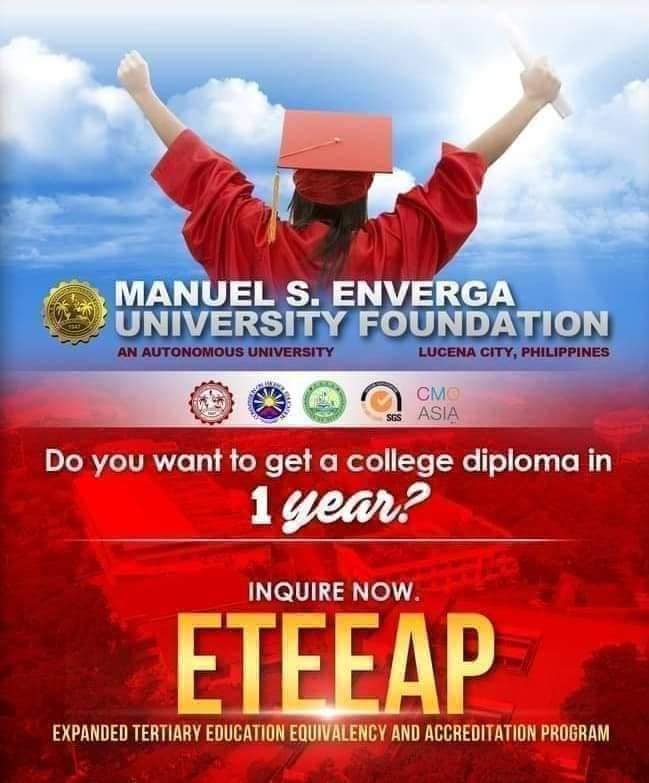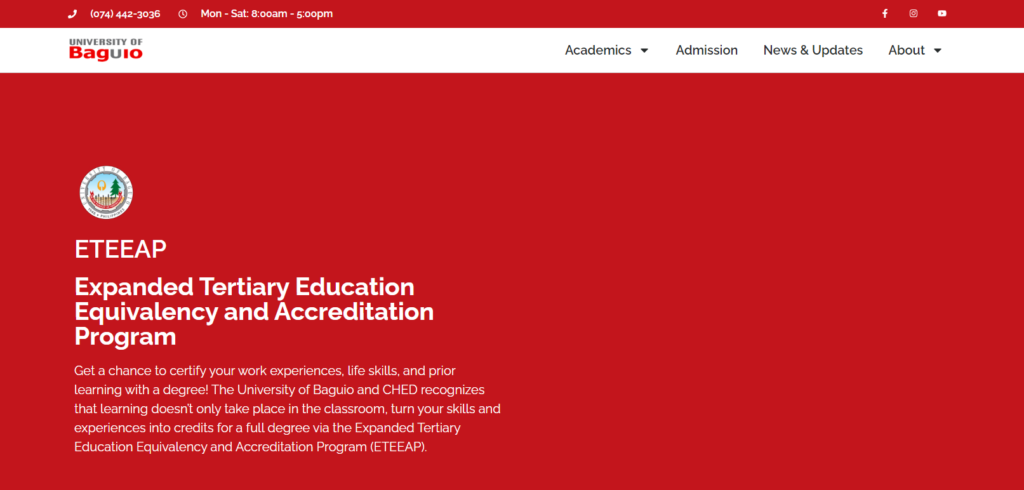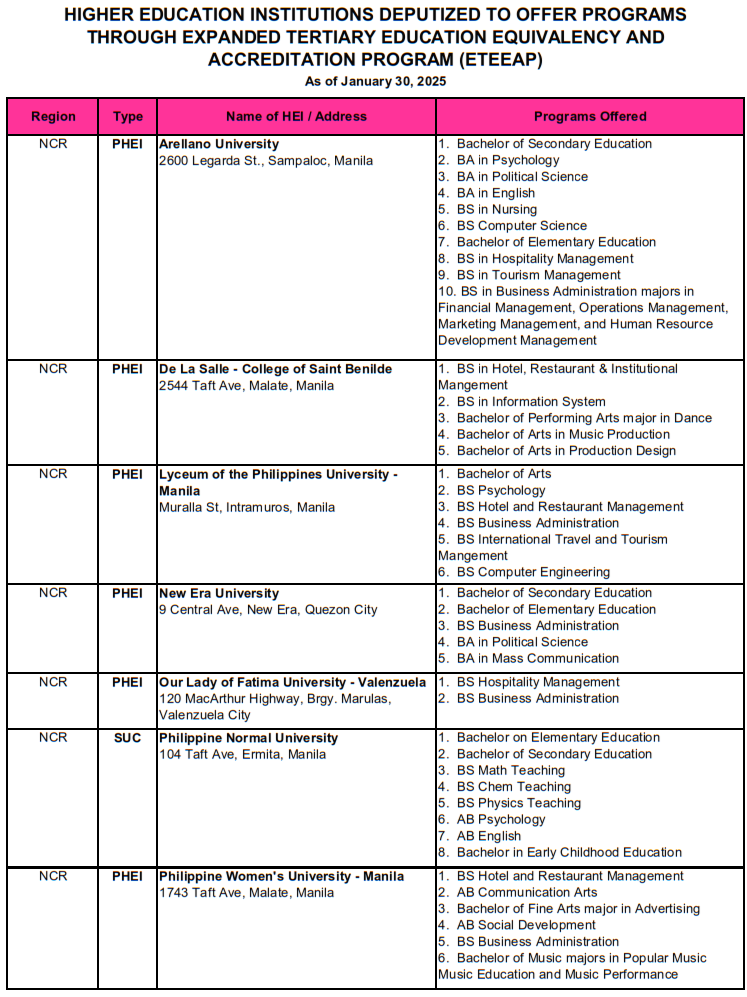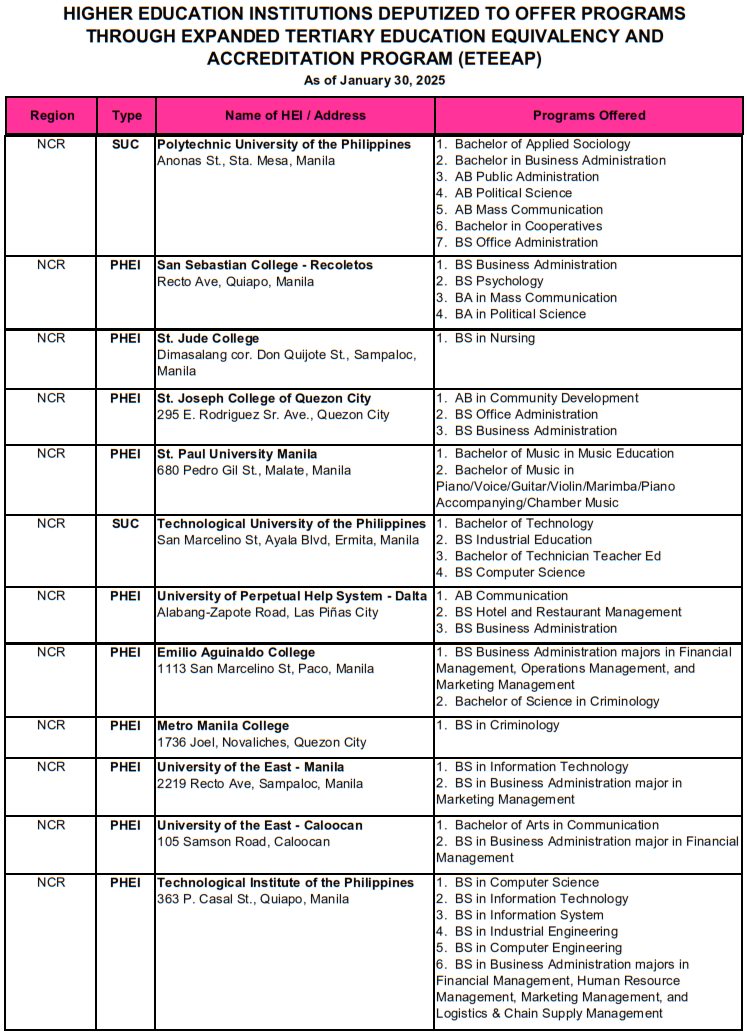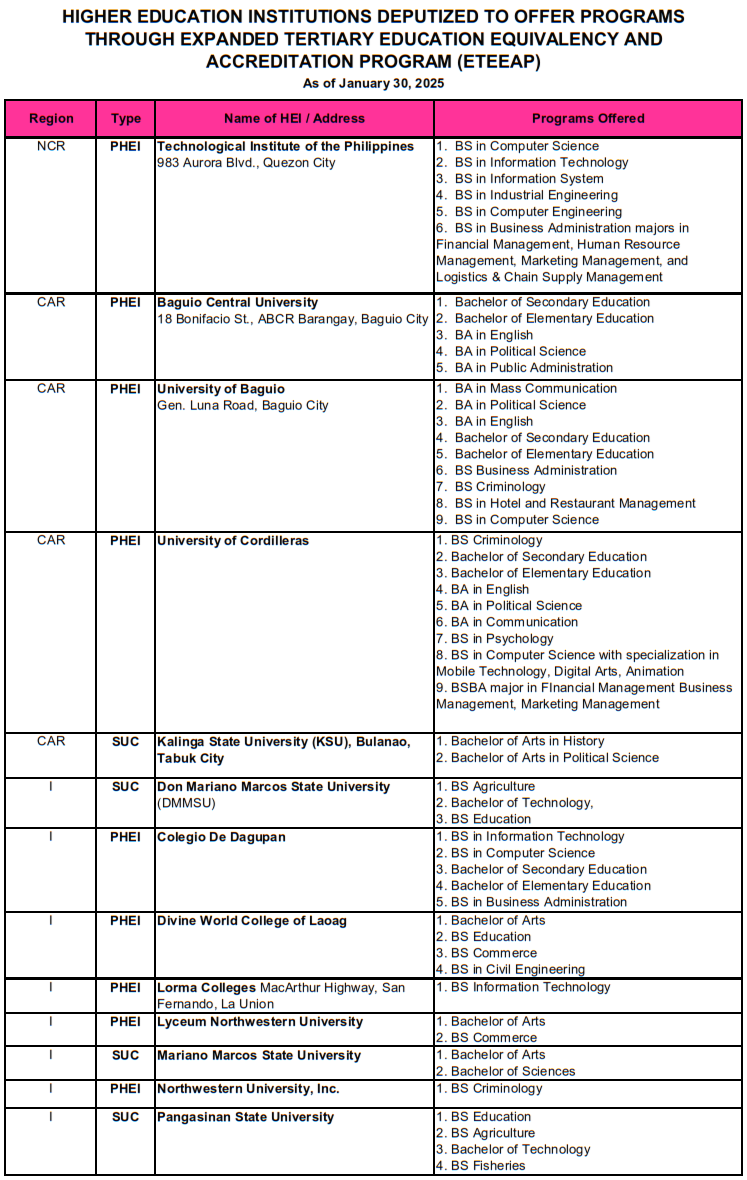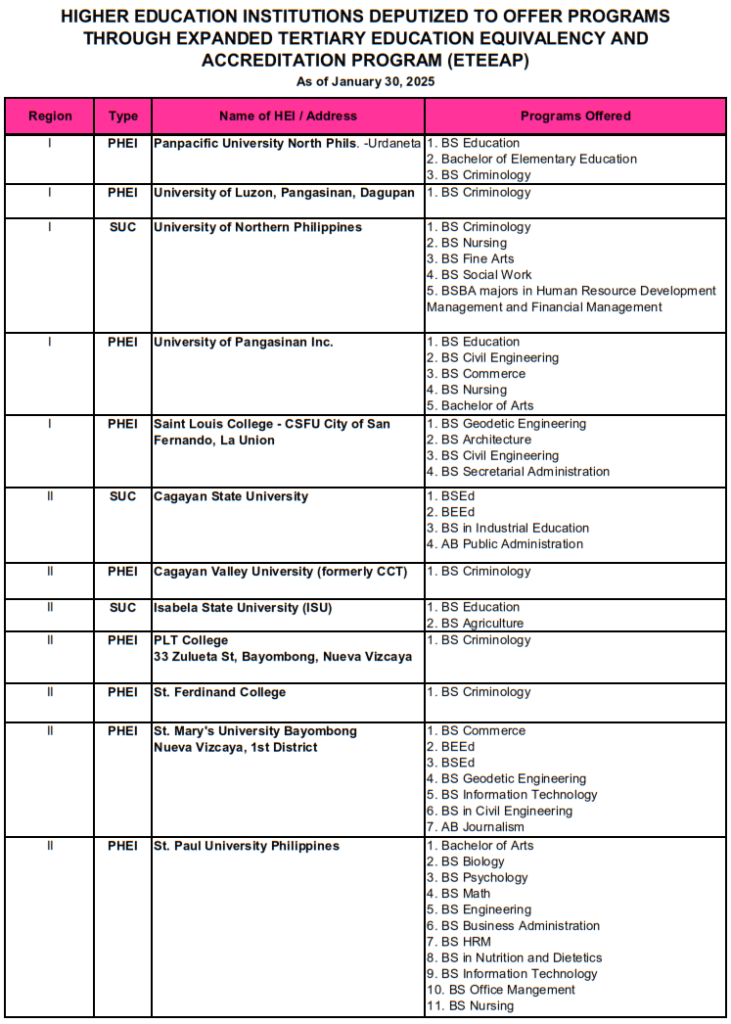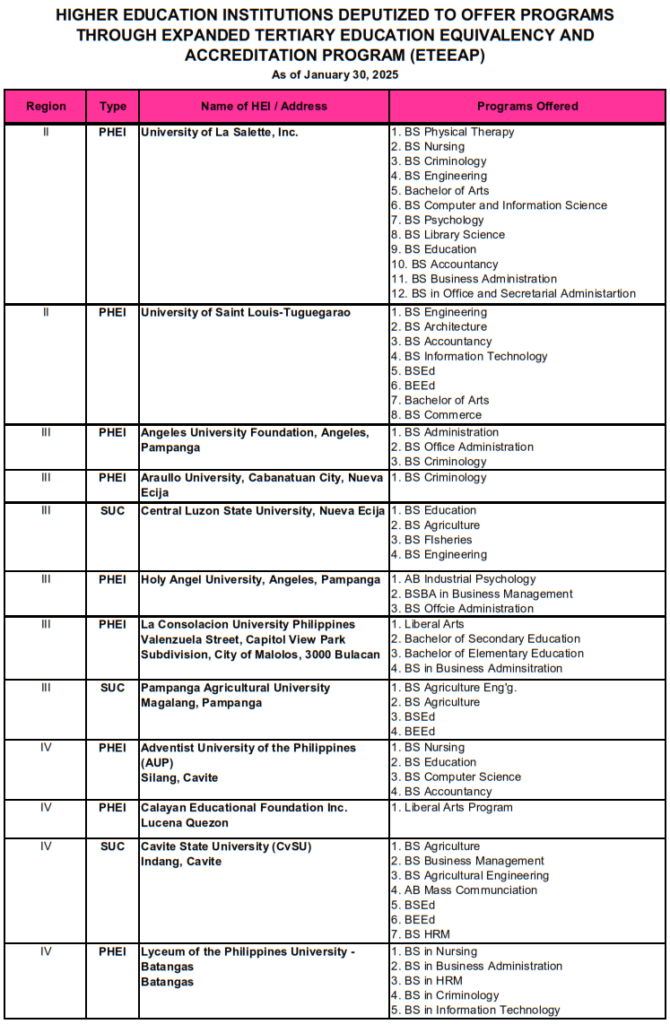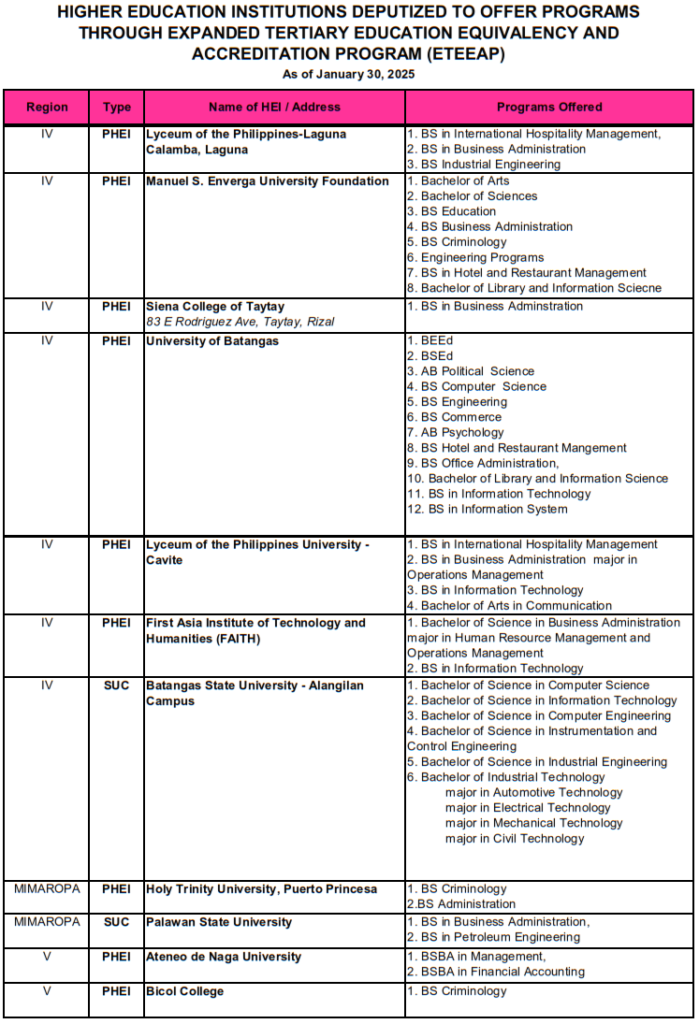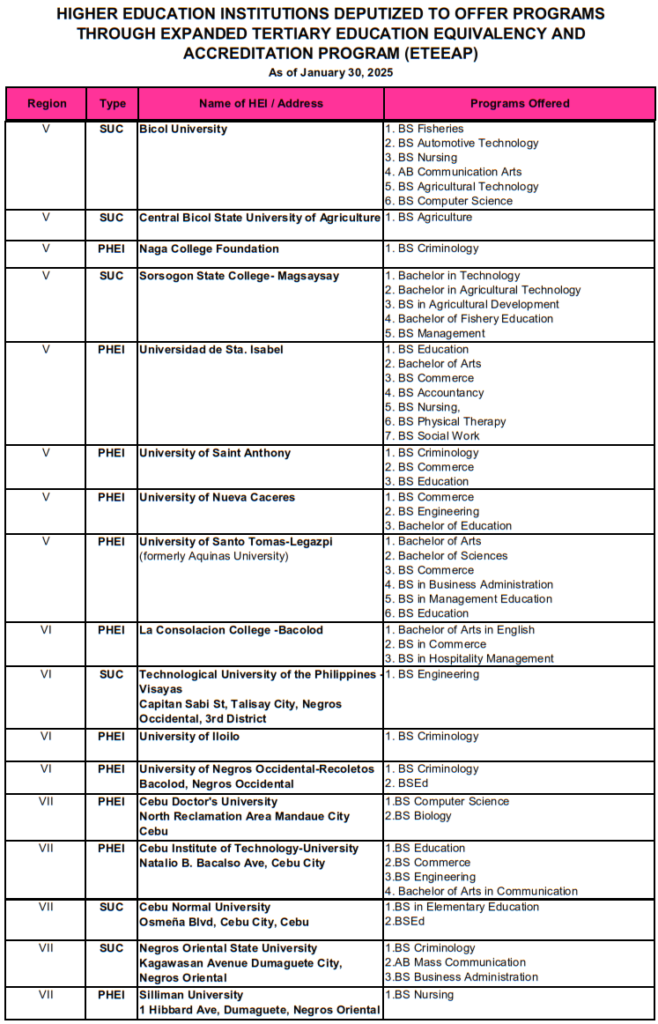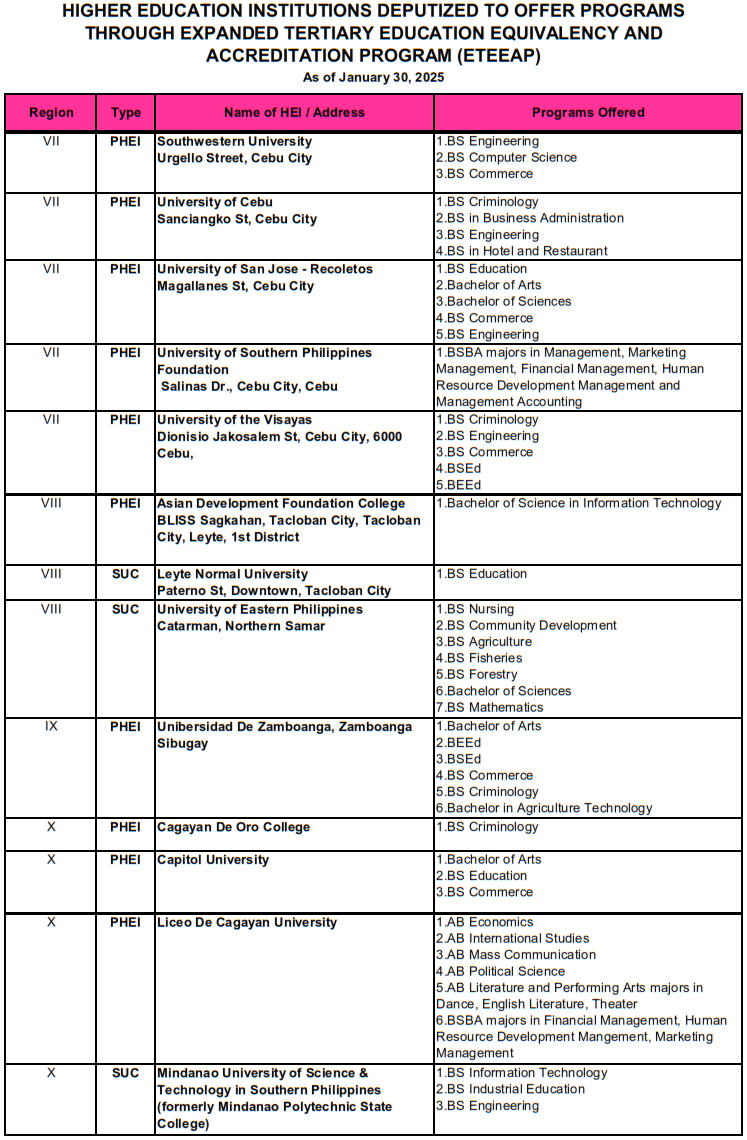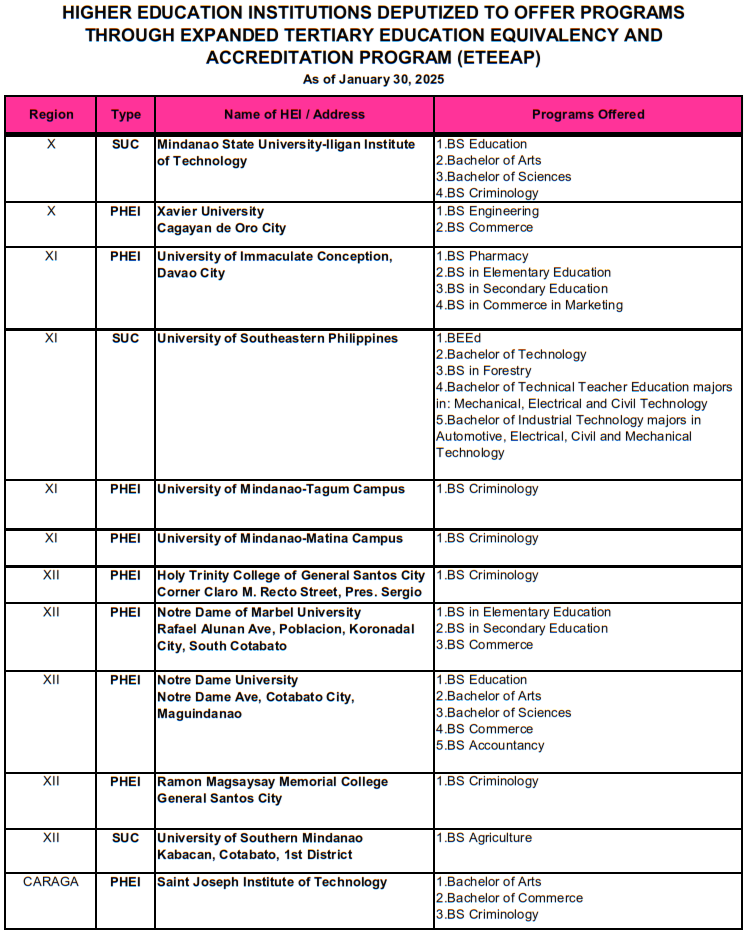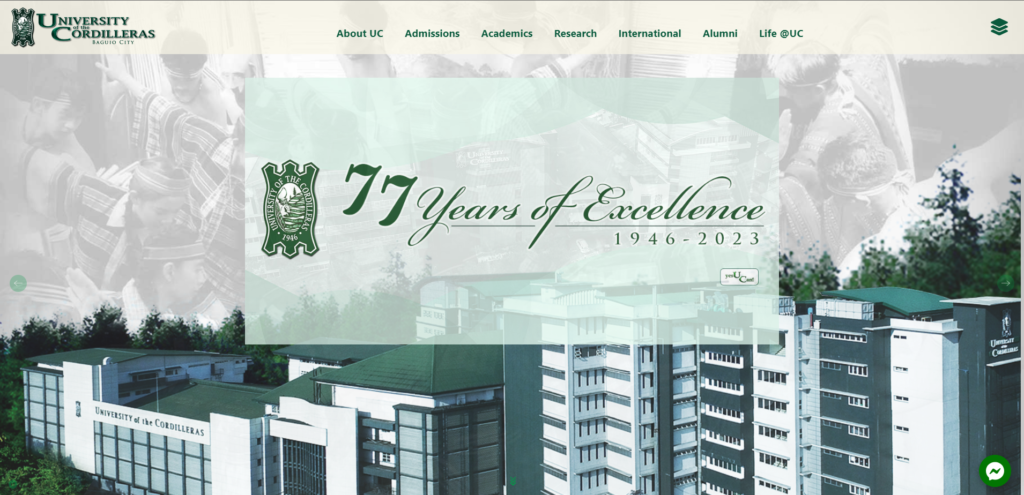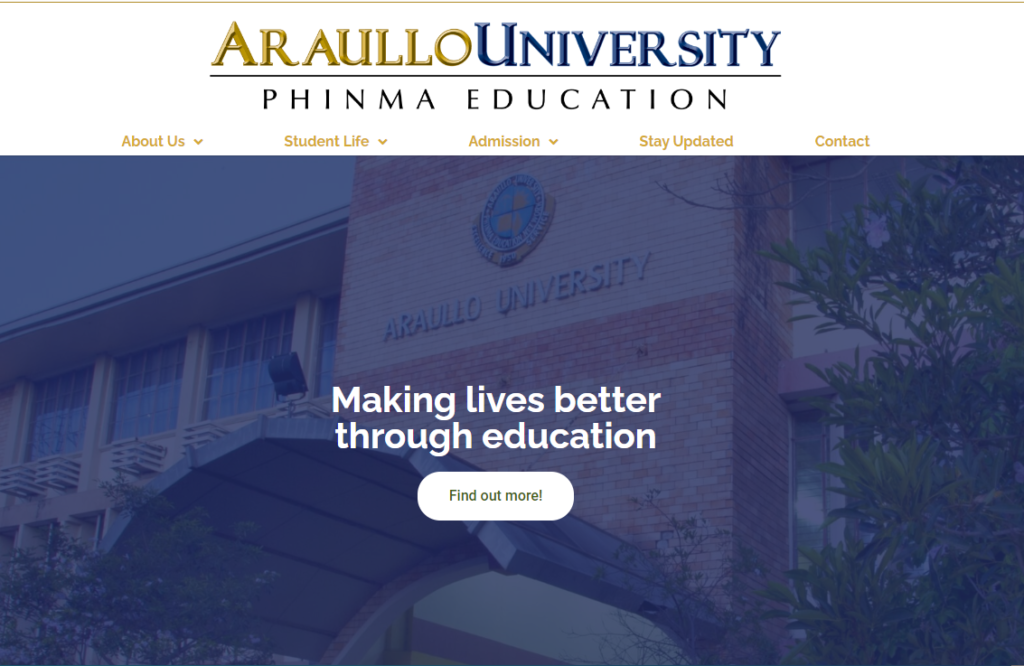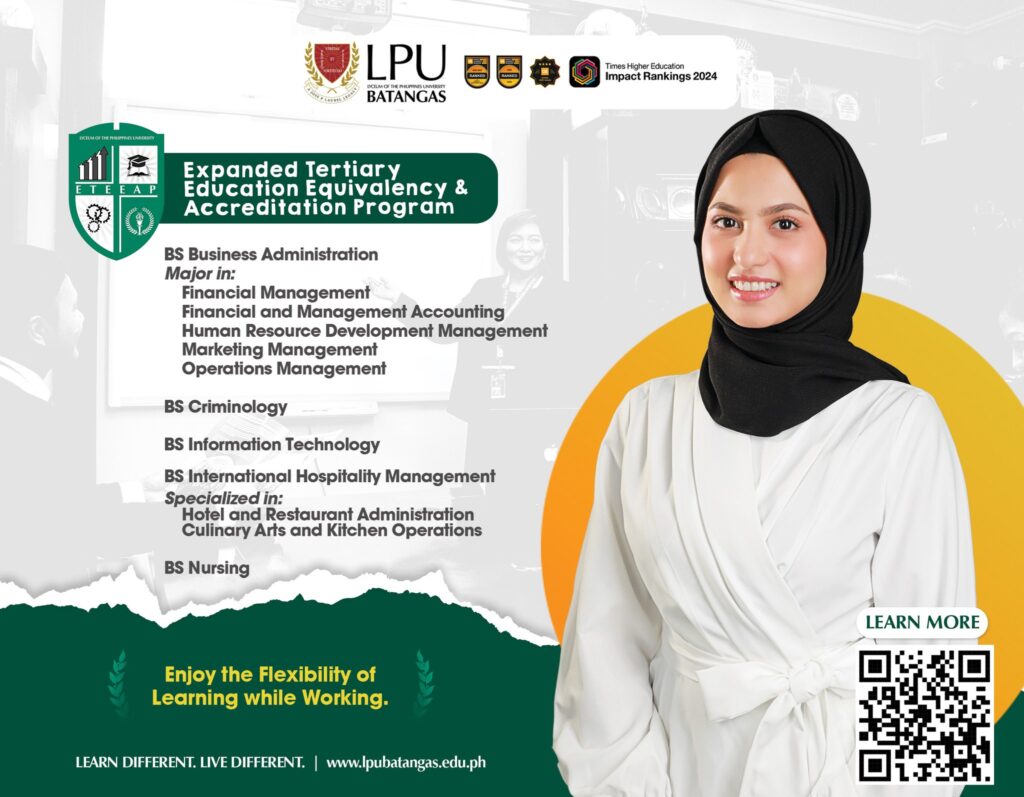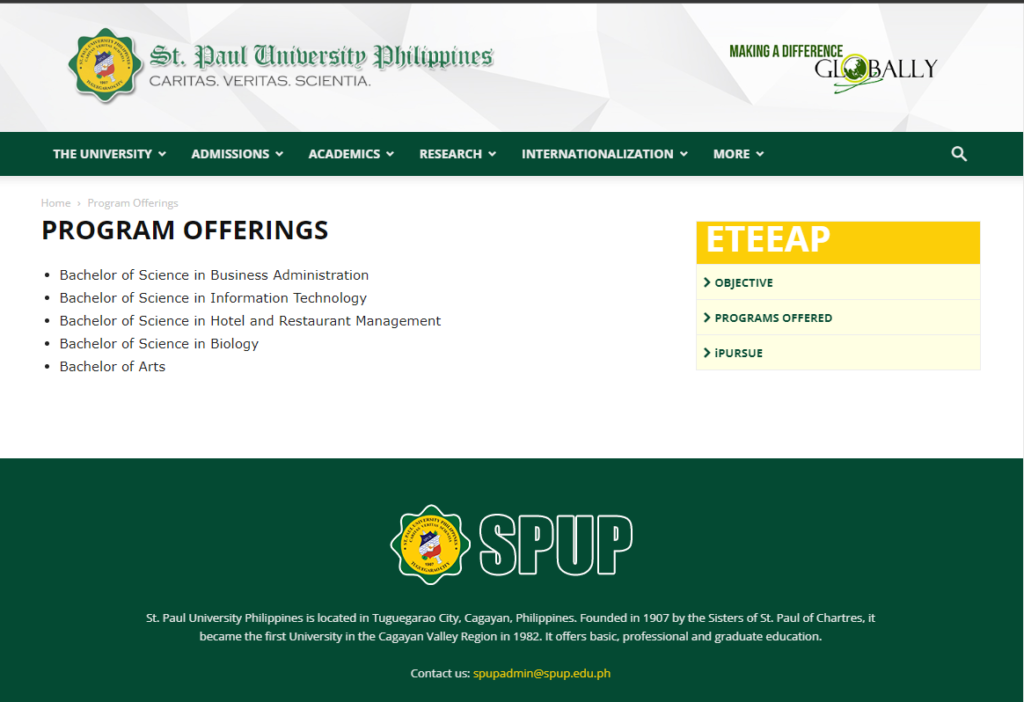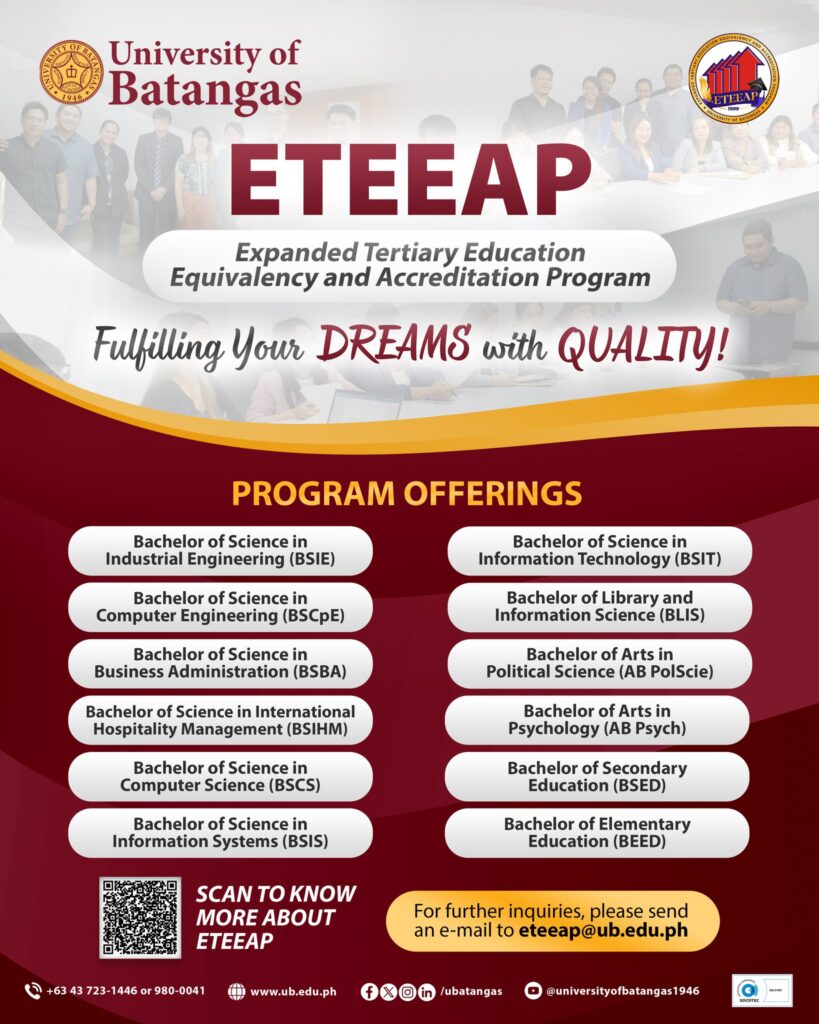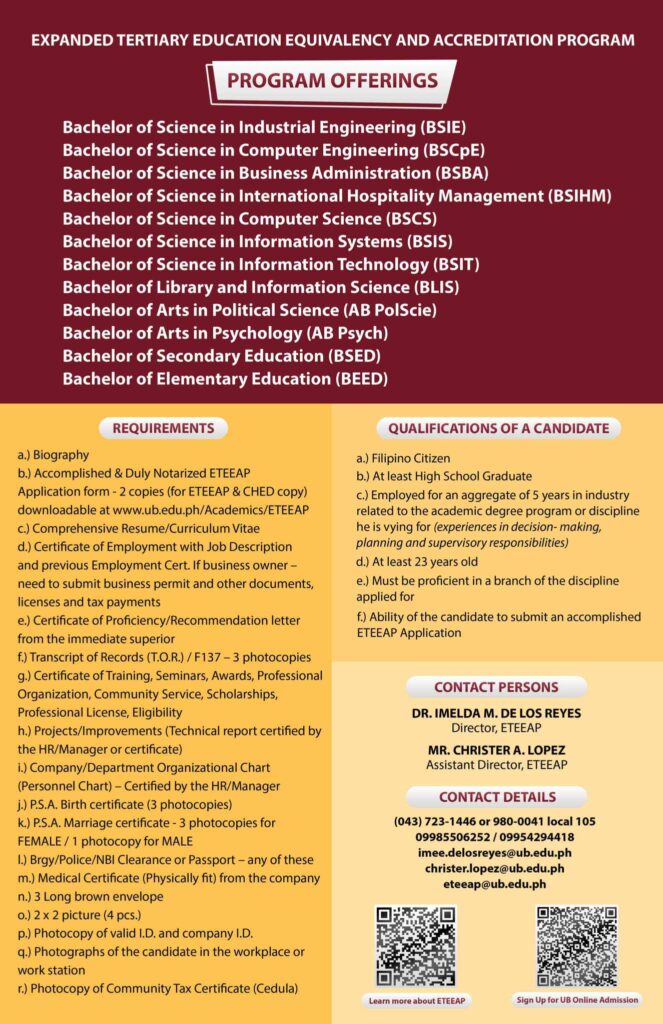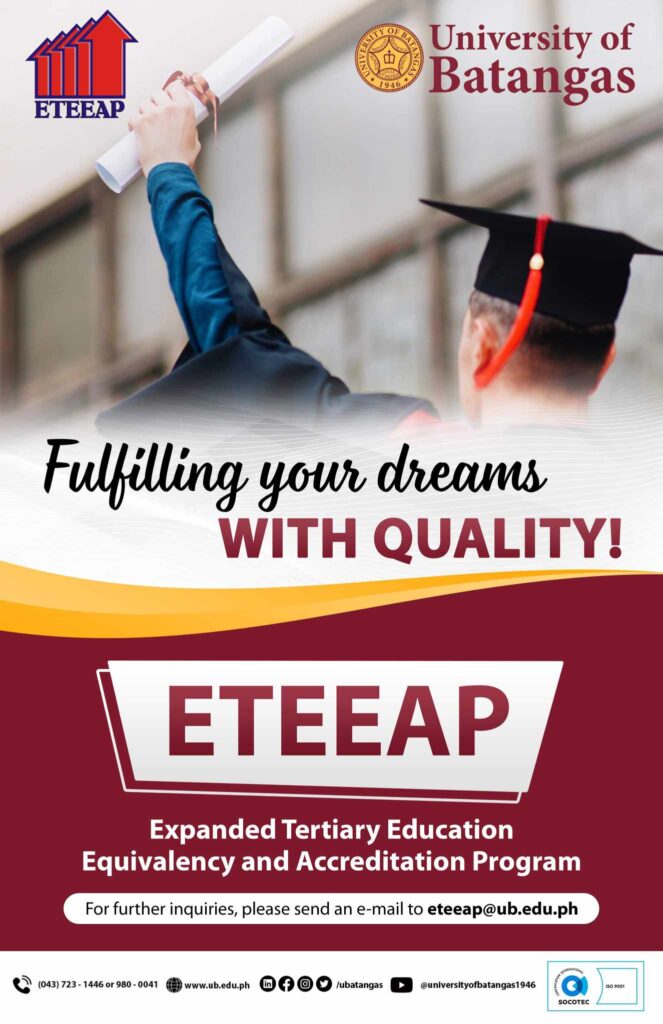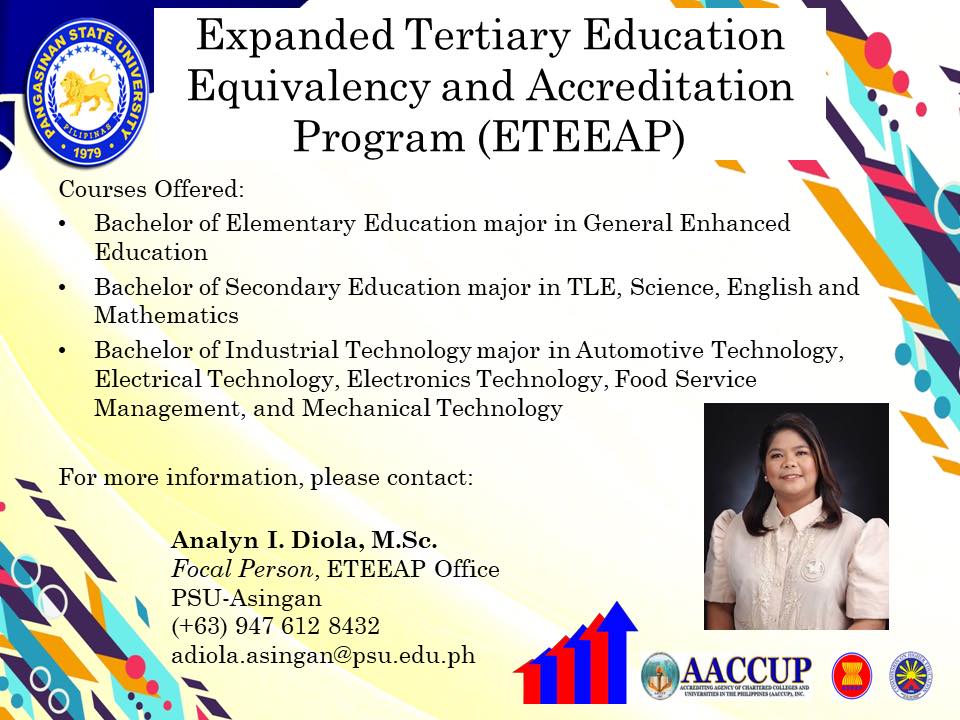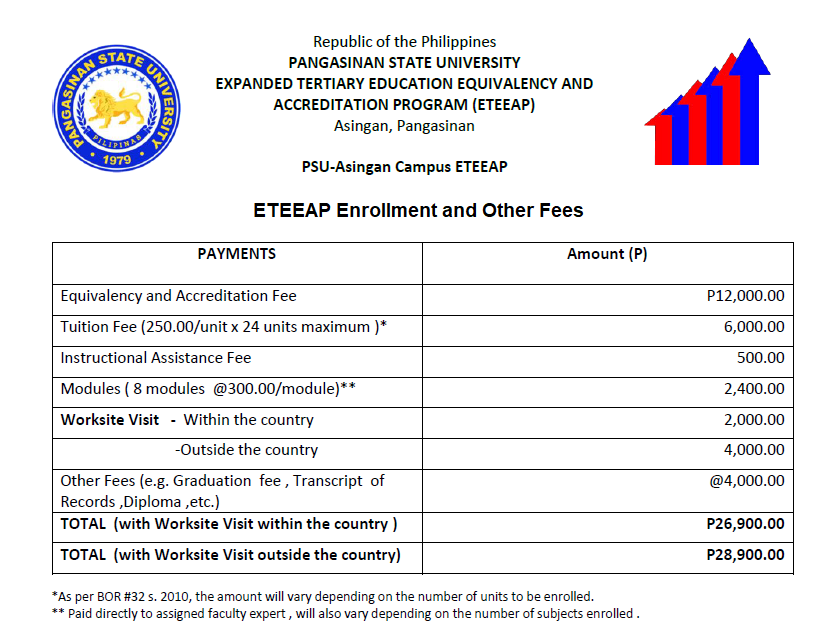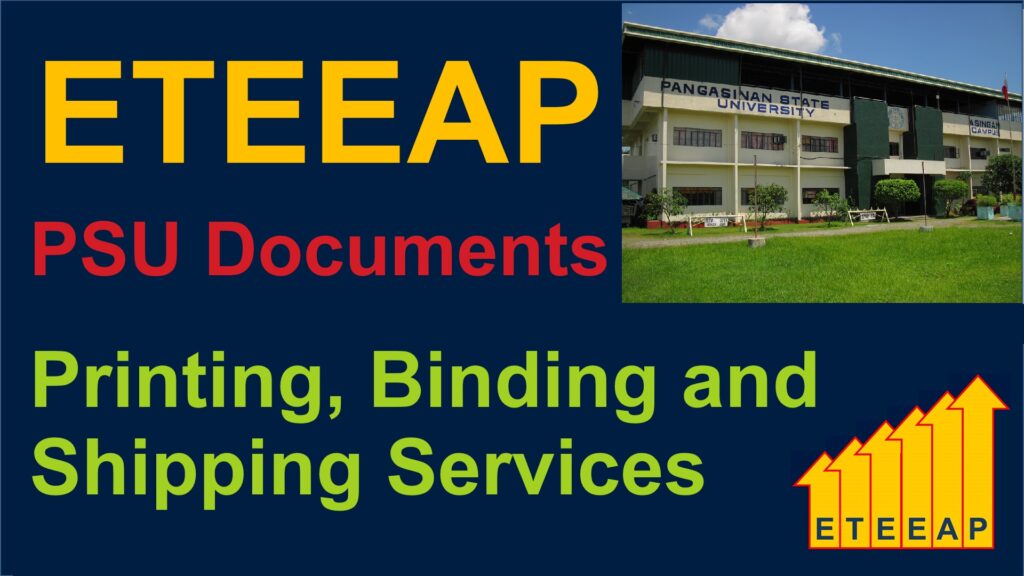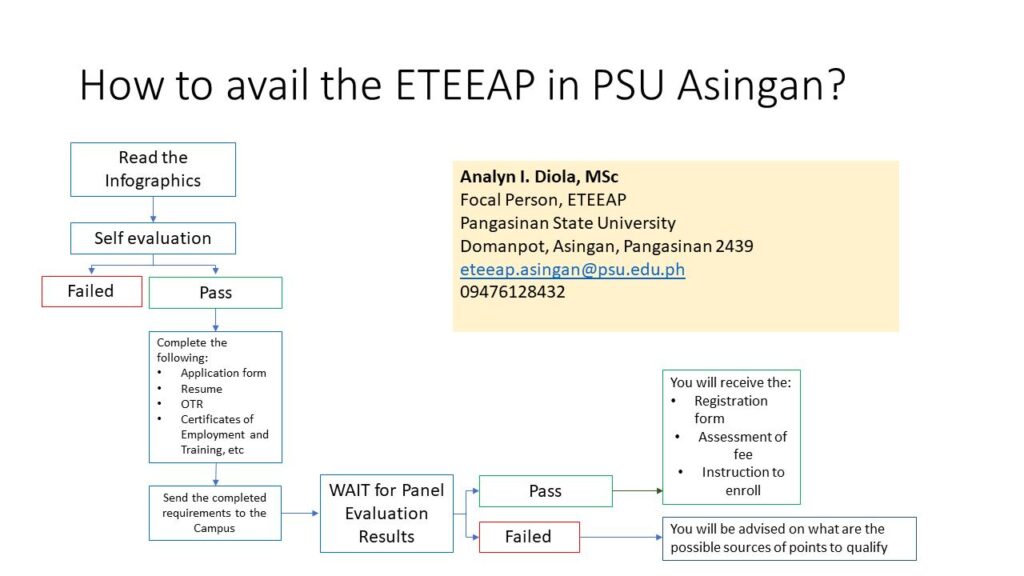We are delighted to announce that we are extending assistance to ETEEAP applicants who need help in their document preparation for the ETEEAP schools of their choice with a minimal fee.
This website, along with its social media platforms and other collaborating sites, have provided all the needed information for anyone who is interested in the program from the requirements, procedures, schools list and other relevant information and needed guidance in joining the program, and it is all for free. You are free to explore this website for all the information you need about the ETEEAP. But if you still cannot follow and need additional guidance and assistance, it is fair then that you should pay for that. It is not the submission of your requirements to the school that you are paying for because that is free, but rather the services that you needed to assist you in your preparation since you cannot follow the comprehensive free information and self-explanatory guidance.
(Ang website na ito, kasama ng associate na mga social media platform at iba pang mga supporting site, ay nagbigay na sapat na libreng imposmasyon at gabay para sa mga intresadong mag-apply sa ETEEAP. Ngunit kung hindi pa ninyo masundan ang mga ito at kakailanganin pa ninyo ang karagdagang gabay at assistance ay nararapat lamang na bayaran ninyo ang extra services na ito. Hindi ang pag-submit ng mga requirement ninyo sa school ang babayaran ninyo sapagkat ito ay libre. Ang babayaran ninyo ay ang extra services ng paghahanda ng inyong mga requirement dahil hindi ninyo masundan ang mga libreng information at procedure na madali din namang maintindihan.)
This is beneficial for you in the following aspects:
- Saves time in producing the right documents.
- Protect your original documents from getting lost.
- Saves money and time on securing and printing unnecessary documents.
- Saves time and money on shipping your documents.
- Assurance that all required documents are submitted, and you are given proper advice on what to submit as well as those you still need to submit.
- For some schools, this eliminates submission of hard copies of your documents on the initial stage of your application. As for schools that require printed copies at the initial stage of application for evaluation, it will also be helpful.
Please note on Notarization of documents (where the school needs some documents be notarized): This is not part of these services. You may submit your documents for the purpose of organizing them and for the initial submission to the school (pre-evaluation). If they require notarized documents, that’s the time you can have them notarized and resend the whole set with the notarized versions.
Now let’s go back to the services that we are offering.
Terms, Conditions and Procedure
- Accountability release (Disclaimer): We would like to emphasize that this offer is not sanctioned by, nor we are partner with, any ETEEAP school. It is our own project and we want to clear the school, where you intend to apply, of any responsibility.
- This does not guarantee your automatic enrollment with the school you are intending to send your documents. This is just one process of your application, and the rest of the procedure still depends on you and the school of your choice. Furthermore, the quality of your credentials also has a bearing in the result of the evaluation.
- We are not the one creating your documents and we do not produce fake and fraudulent documents. We only assist and guide you on how you prepare your requirements with samples and links to where you may be able to acquire certificates and other supporting documents.
- A fee of PHP 5,000.00 is required for these services. This is paid upon confirmation that you want to avail of our services. Payment is through G-Cash or bank transfer to a BDO-Unibank account.
Please be aware that the above-mentioned fee does not cover any required notarization of your documents as well as the transmission or submission of your requirements to the school. You need to enquire at the school as to what type of notarization is needed. As for transmission or shipping, please see number 9 below for the details.
Important: You need to fill out the Applicant Declaration and Agreement Form with the link you can find below to signify your acceptance and agreement with the terms and conditions of these services. The instruction of how you pay is also in the form. But before you do that, please read the rest of the conditions. - After payment, we will start the process of assisting you in your documents preparation. We will guide you through the WhatsApp chat below, email thread or/and forms you will be filling out. We will not answer any questions and clarifications you will send through email and WhatsApp unless you already paid the service fee.
- As to how you should submit your documents to the school, it will be your responsibility and arrangement with the school of your choice. Schools have different procedures and you need to check and verify with them.
Again, please be aware that this agreement (including the above-mentioned fee of PHP5,000.00) does not cover the transmission or submission of your requirements to the school. - Either you pass or fail the pre-evaluation, the school will inform you. The process of submission of the rest of the requirements along with other procedures will be your own arrangement with the school after you get the result of the evaluation.
- You need to create an email account with GMAIL (if you don’t have one yet) as this is needed in the whole process of your document preparation. You will also need this email account when sharing documents on Google Drive with us and with the school you will be enrolling at.
- If you need assistance in transmitting (or submitting) your portfolio to the school, an additional fee of PHP 1,500.00 is required for electronic transmission. If your portfolio needs printing and shipping, there is an additional fee of PHP3,000.00 for a single set, and PHP1,500.00 for each additional set. These fees can be paid later after the completion of your portfolio.
Procedure
- If you agree with the above, you can start filling out the Applicant Declaration/Agreement Form below.
- Pay the corresponding service fee and follow the guidance of the form. All instructions and payment details are in the form as you answer each question.
- Then contact us through the email in the form to start the process.
Applicant Declaration and Agreement Form
If you agree with the above terms and conditions, please open and carefully follow the instructions in the form on the link below. After completion of the form and notifying us, you will be directed to another form that will guide you through the whole process of preparing your requirements.
Thank you for trusting us. Please be assured that we will provide you the best services you deserve.
For questions and needed clarifications, please go to our comments page here.
Please click/tap here to our comments page.
